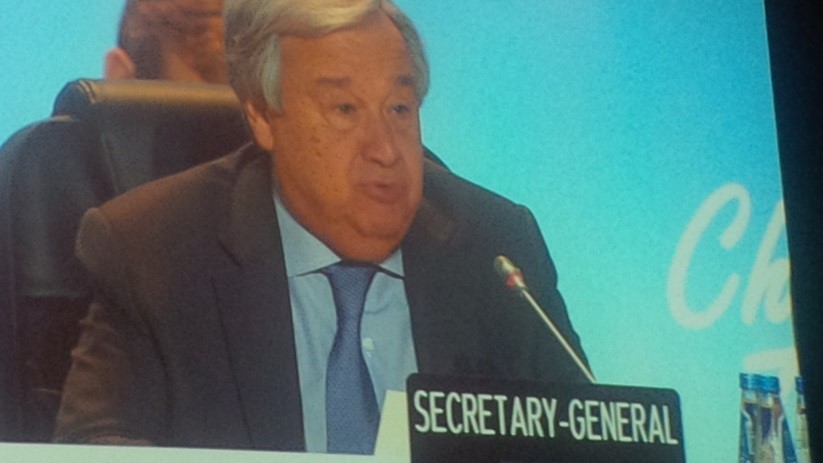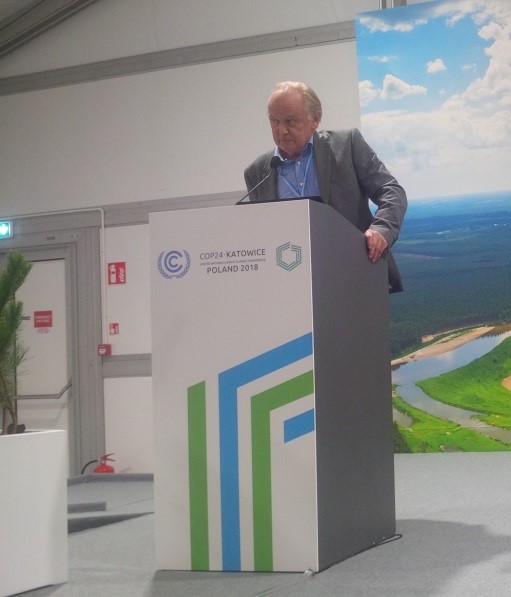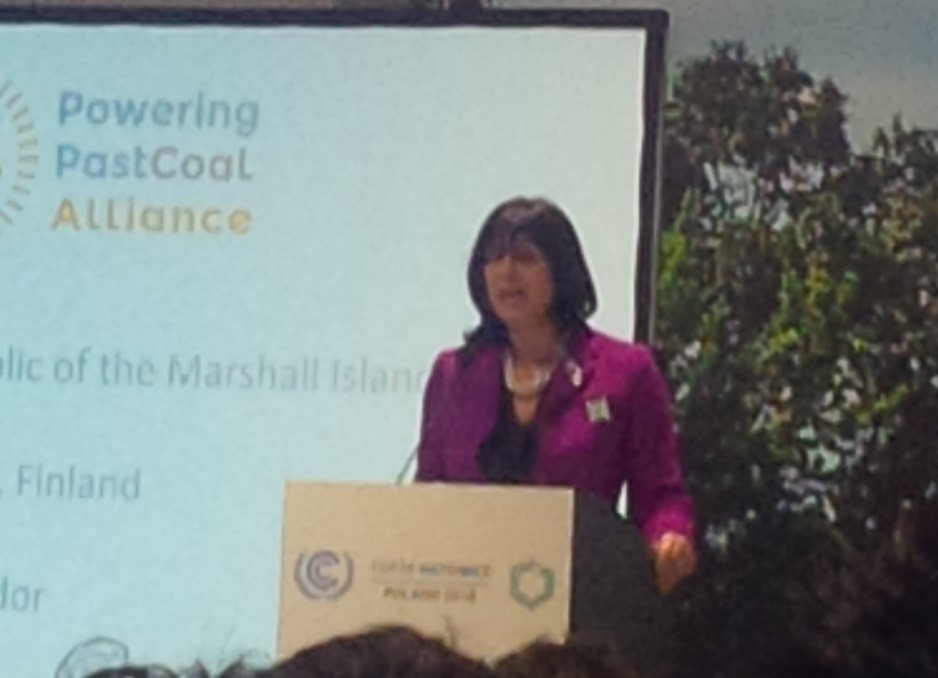-
Ups and Downs of a COP! A Blog from Katowice
Posted on December 14, 2018It does seem that INTO’s recent paper on Heritage Conservation and the SDGs is particularly timely in the light of much of the debate at this COP where climate change and the SDGs are inextricably connected. A summary of the recent IPCC report highlights this:
“The highly motivating, yet alarming findings of the IPCC Special Report on 1.5°C: to limit global warming to 1.5°C will require rapid, far-reaching and unprecedented changes in all aspects of society – and in doing so it will bring clear benefits to people and ecosystems.
According to the Report, limiting global warming to 1.5°C compared with 2°C would reduce impacts on ecosystems, human health and well- being, making it easier to achieve the UN Sustainable Development Goals, and could go hand in hand with ensuring a more sustainable and equitable society. In contrast, exceeding 1.5°C means grave risks for people and vulnerable systems around the globe.
The Report also highlights a number of climate change impacts that could be avoided by limiting global warming to 1.5°C compared to 2°C or more. For instance, by 2100, global coral reefs, and rapidly escalating risk sea-level rise would be 10 cm lower. The likelihood of an Arctic Ocean free of sea ice in summer would be once per century compared with at least once per decade. Coral reefs would decline by 70–90% with global warming of 1.5°C, whereas virtually all (>99%) would be lost with 2°C.
As the Report clearly highlights, we are already seeing the consequences of 1°C of global warming through more extreme weather and rising sea levels, among other changes.
At the current rate of warming, the world is likely to reach 1.5°C warming between 2030 and 2052.
The Report shows that the wide- ranging impacts of climate change will be much worse at 2 ̊C of warming than at 1.5 ̊C. Beyond 1.5 ̊C climate change impacts would be far- reaching and severe – from the loss of Arctic sea ice to the demise of tropical climate extremes.The IPCC confirms that it is feasible to hold warming to 1.5 ̊C, or very close to it, throughout the 21st Century, but that there is no time for complacency.
Carbon dioxide emissions must be nearly halved in the next ten years, and reach net-zero by 2050.
The advantages of early action are made stark in this Report, especially regarding the sustainable development benefits, including poverty alleviation, health and access to clean energy”.
It is certainly true that the IPCC report has been highly motivating. Every event that I have been to there has been mention of the need to keep the temperature level to no more than 1.5°, and as I stated in my previous blog, identifying the means to achieve that through zero carbon emissions by 2050, has effectively been the agenda for this COP.
On Wednesday we heard the UN Secretary General, Antonio Guterres, speak at a High Level event which Observer Organisations (unusually) were allowed to attend. He talked of boosting ambition and scaling up countries’ Nationally Determined Contributions (NDCs). “Failure in Katowice would be a disaster – the eyes of the world are upon us. We need to finish the job of the Paris Agreement – the window of opportunity is closing”, he said.
And yesterday I heard that the COP would last 2 extra days, until Sunday, as there were ‘blockages’ – I am getting a sense of déjà vu!
A briefing meeting took place for our side event later that afternoon between INTO, Gen, and the Nordic Folkecenter, to establish the order of events , timings etc.
So Thursday was the big day with our own side event at 11 30 which was attended by around 50 people. Far be it for me to judge as the Moderator for the session but by all accounts it went well!
The only downside was the air conditioning system which regularly pumped hot air, very loudly, into the room so it was extremely difficult to hear the questions at the end of which there were many!
Shortly after our event I attended another being addressed by Claire Perry, Minister of State for Climate Change in the UK Government and Catherine McKenna Minister of the Environment in Canada. They had launched their Powering Past Coal initiative at the last COP and this meeting was an update. Whereas at the launch they had 18 signed up country or business members they announced that today they had 80 (sounds a bit like INTO membership but in a shorter timescale!!)
Claire Perry announced that coal would be phased out by 2025 and Catherine McKenna said for Canada it would be 2030. There were lots of other examples from around the world and the bottom line was that if we do not stop using coal we will not meet the Paris agreement target of 1.5°C.
We had a successful networking opportunity with a reception at the UK Pavilion later that afternoon and later that evening, back at the B&B with 9 journalists from Morocco one of whom insisted on doing a recorded interview with me, in French, for the main television channel in that country!
Oliver Maurice 14 Dec 2018

 44 (0)20 7824 7157
44 (0)20 7824 7157


